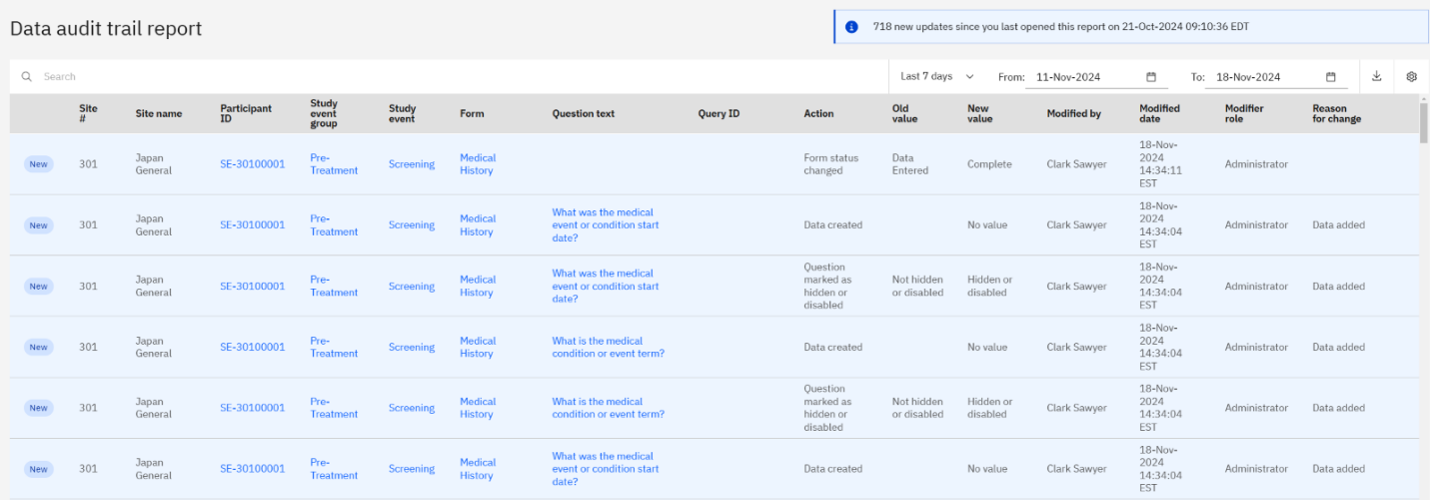The benefits of using the same clinical trials platform across phases
Sponsors can achieve greater efficiencies with a nimble clinical trials platform, able to support all trial phases and reduce study complexity.

This piece originally appeared on Pharmaceutical Technology.
By streamlining data entry and reducing complex paperwork, digital platforms can reduce costs and timelines for clinical trials. While SaaS solutions currently take up a market share of 30%, GlobalData analysis suggests that spending will increase on cloud services for pharma by 2026, reaching $7.3bn. Within this total, SaaS providers are expected to account for the majority of cloud services at $4.5bn.
SaaS platforms operate on a subscription model, with software and hosting managed and regularly updated by the SaaS provider, removing the responsibility for customers to individually manage the platforms. This model also offers sponsors and CROs greater levels of technical support and data security.
However, sponsors risk losing some of these efficiencies when they transfer to different a clinical trials platform for each phase. Learning how to operate a new platform for each phase can lead to a lack of consistency and slow down trial progress.
The pain points of transitions at this scale could be significantly eased if only one digital platform was used throughout a study’s research maturation. A singular eClinical cloud-based platform across phases I to III can significantly reduce expenses and training times for sponsors, while also creating a central, cohesive library of study data. So why isn’t this the industry standard?
Finding the right clinical trials platform for all phases
A flexible clinical trials platform can mean lower running costs and simplified data management, allowing more creative trial designs and easier updates during a study. Such a platform can also mean an easier scale-up for larger studies with greater consistency and familiarity among trial operators.
To profit from these advantages, CROs should seek an adaptable, scalable platform that can fulfill the requirements of each trial stage and, especially important, provide ease of access.
“Across phases, you’re probably dealing with a larger number of sites,” says Kofi Darkoh, Vice President, Consulting Services and Customer Solutions, Zelta by Merative. “You want a platform that can absorb data in different formats and from different sources – quantitative data from labs, but also qualitative data from patients, such as ePROs – and still process them in a uniform way.”
As complexity ramps up, platform capabilities need to change. Built-in library management can help control datasets and provide structure to the volumes of information collected in a trial.
“It’s important to be sure that the data you’re collecting comes out in your exports in a format that’s easy to do analysis and reporting work throughout the study and in support of regulatory submissions,” explains Walker Bradham, Senior Director of Product Management and Design, Zelta by Merative. “Ideally, you have the same kind of structure that can be enforced throughout your research phases. Without that, it requires a lot to rework and causes avoidable pain when you’re organizing that data for submission to a governing body.”
Advantages of using one clinical trials platform
Using one clinical trials platform from phase I to III and beyond creates continuity and helps teams build up expertise. By mastering a single platform, study teams can execute tasks much more quickly, reducing inefficiencies.
Crucial to the efficacy of the one-platform approach is product design and functionality. “If the workflows and navigation are consistent within a system, which is not the case for all pieces of technology, the more optimized and efficient the users are because the software looks, feels, and works the same,” says Jennifer Duff, Executive Vice President and General Manager, Zelta by Merative. “This creates an innate efficiency in and of itself.”
As Duff notes, it also creates the ability to optimize data standardization. If the data is consistently structured on the backside, it can be pulled and analyzed to identify challenges within the study much more quickly.
Why one-platform research isn’t the norm for clinical trials
Sponsors often expect or request a change of platform between trial phases. This can be due to a perceived technical need, a change of CROs, or if the product was acquired between phases. In addition, the acquiring sponsor may use a different system. For CROs, it is often simpler or expected to go along with a sponsor’s wishes, even if it requires paying for more staff who are trained to use different platforms.
“There’s a fear around the level of risk that comes with Phase III failure, especially,” notes Darkoh. “You’ve put so much money and resources into the product. If the sponsor believes that something else is tried and true, it feels easier not to question the decision.”
In addition, some large pharma companies have early development teams and late-stage development teams that may not be in sync with each other. In passing an asset along, different operators take over almost every aspect of clinical decision-making. If they prefer using a certain platform, they’ll make the switch.
“It might just be a habit of the way things have been done in the past, without even considering if they could be done in a different and better way,” says Darkoh.
Growing clinical trial complexity requires platform flexibility, not platform complexity
A recent article in Nature highlighted an increase in the complexity of clinical trials over all phases and many therapy areas. This is extending development timelines for medicines and delaying the number of patients able to benefit.
Further consequences include an increased chance of errors and changes to protocols, greater burdens for patients and investigators, and possible difficulties in replication.
A decision is required by sponsors on whether there is really a need to increase the complexity of trials, if it is worth having these extra complexities, and how best to manage the trade-off of costs and speed versus complexity.
For Phase III trials in particular, there is an assumption that the complexity of the study will increase as larger numbers of sites and patients are involved, and that the painstaking effort required when changing platforms is simply another part of this process. Staff will need to be retrained to use the new software and work that could have been transferred from previous phases ends up being lost.
“Even though [CROs] assume that a Phase III trial should be more expensive, in some cases, you force those higher costs by requiring an unnecessary transition,” explains Darkoh. “You lose the benefits of being able to reuse materials, personnel, and knowledge, simply because of the perception that it has to be done a certain way.”
The expectation that platforms need to change as trials scale up creates lost opportunities, according to Duff. CROs are expected to maintain a team that understands certain platforms, or a sponsor won’t even consider them for the work. This creates additional overhead to maintain knowledge and processes across systems in order to be competitive.
A single, flexible platform for Phases I through III
eClinical platforms such as Zelta by Merative are setting new industry standards for clinical trial practice. The platform is designed so that the implementation for any study is the same, allowing staff to learn how to use just one system and then customize the setup to the needs of a given sponsor or study. The system does not change between sponsors or CROs, only the study. This simple and stable interface also makes it easier and faster to train personnel.
“It’s a much lower long-term investment from an enablement, capability, process, training, and expertise view than other systems,” says Duff.
“We support multiple kinds of ePRO forms and types, and there’s added flexibility to design the CRF in a simple or complex way,” adds Darkoh. “If you want to use Zelta for a Phase II trial, it’s perfect. But if you want to use it for a Phase III trial as well, you can simply do more with it.”
Operating with a single platform across all of a clinical trial’s phases, with a system as flexible and intuitive as Zelta, has been proven highly effective in boosting efficiencies and reducing expenses.
Related Articles

Zelta ranks as Major Contender in Everest Group’s 2024 Clinical Data and Analytics PEAK Matrix report
We’re excited to announce that Zelta has been positioned as a Major Contender in the...
By Jennifer Duff | 3 min. read

Zelta user success stories: Faster timelines, cleaner data, in-house flexibility
This month we’re profiling just a few of the CROs, sponsors, biotech, and pharma...
By Kofi Darkoh | 4 min. read

Gene therapy: How Veristat cut trial database costs by 30%
This piece originally appeared in Pharmaceutical Technology. The gene therapy...
By Jennifer Duff | 7 min. read
Ready for a consultation?
Our team is ready to answer your questions. Let's make smarter health ecosystems, together.
